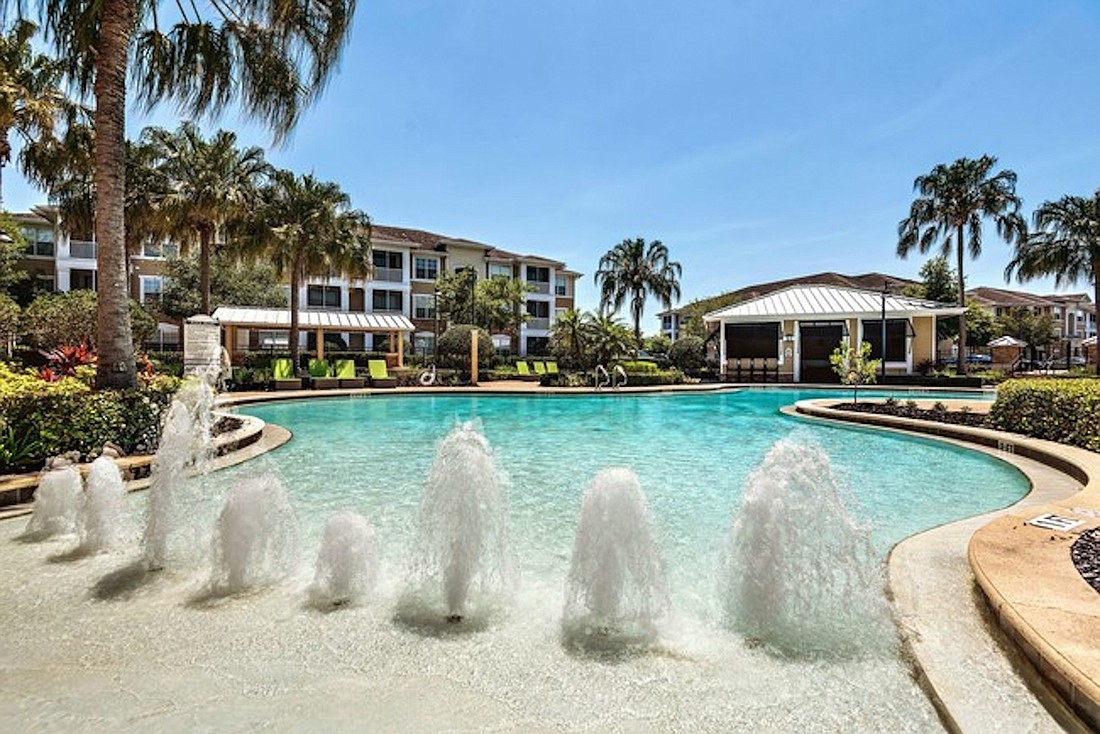- December 17, 2025
-
-
Loading

Loading

On the heels of an extremely active 2019 in which it made more than two dozen purchases, Tampa-based American Landmark Apartments says it is aiming to buy as much as $2 billion worth of multifamily rental projects in the year ahead.
Company CEO Joe Lubeck says that if successful, the company will control about 40,000 units at the close of 2020 — up 21% from about 33,000 today.
“We’re cautiously optimistic,” says Lubeck. “We continue to have a lot of confidence in the select Southern, ‘Sun Belt’ markets in which we operate. It all depends on price and location.”
At least part of that optimism stems from American Landmark’s performance in 2019, when it acquired 30 new properties containing 6,000 new units in Florida, Georgia, North and South Carolina and Texas at a cost of $1.7 billion.
The company, which was created in 2016 in the wake of a $1.9 billion sale of the Lubeck-led Landmark Apartments Trust to Starwood Capital, has also benefitted from macro-economic trends that have compelled many Americans to eschew home ownership in favor of renting.
Moreover, job growth and in-migration to such states as Florida and Texas — and more specifically cities such as Jacksonville, Orlando, Tampa and Miami in Florida; Dallas, Houston, Austin and San Antonio in Texas; Charlotte and Raleigh in North Carolina — have fueled apartment occupancies and rental rate increases.
American Landmark also has acquired apartments in cities like Richmond, Va., Atlanta, Nashville and Charleston, S.C.
In all, the company’s portfolio is valued at roughly $4.5 billion.
Along the Gulf Coast, American Landmark owns the 300-unit Luxe at 1820 near Brandon, which it acquired in early 2019 for $53.7 million and the 360-unit Westly Shores Apartments, a former PriceWaterhouseCoopers corporate campus that it bought in Tampa’s Westshore Business District last summer for $64 million.
Even as it has honed its geographic focus, American Landmark has crafted a unique niche and become well known in the industry for buying off-market deals — or as Lubeck calls them, “special circumstance” transactions.
“There are any number of situations or conditions that lead to special circumstances as to why a property comes to market,” he says.
“There’s sometimes generational issues that prompt a property to be sold, there’s banking issues that sometimes require a property to be disposed of, there are tax situations that lead to sales, sometimes there are management issues that lead someone or some company to decide to sell,” Lubeck adds.
“We’ve looked at six properties this year alone that have come to market because of a divorce.”
Nor is American Landmark afraid to re-purchase properties it acquired, improved and subsequently sold. In the past year, it has revisited a half dozen such apartment complexes, Lubeck says.
When those properties come to Lubeck or his team and they fit the company’s investment criteria, American Landmark leverages a well-oiled financial apparatus that has helped it generate internal rates of return exceeding 23%.
“We’re very fortunate to be well-capitalized and to be considered a swift and reliable buyer,” Lubeck says. “It’s one of the primary reasons we often get to see those opportunities before others do.”
Of the 30 properties it acquired last year, Lubeck says two-thirds were so-called “special circumstance” deals that never came to market.
On the financing side, partnerships with Israeli-based Electra America and domestic companies like RSE Capital have helped boost American Landmark’s portfolio, as have a series of funds in each of the past two years.
The company’s Multifamily Fund II, in 2018, raised $462 million from investors, while Multifamily Fund III, launches last year, raised in excess of $500 million to acquire properties.
Lubeck says the company typically operates by employing a one-third equity to two-thirds debt ratio.
“It’s pretty conservative in the real estate world, but it’s a risk vs. reward model that we’ve found works best for us and we’re comfortable with. And we’ve been fortunate that, in using that ratio, we’ve been approached by a number of institutions that also like to see that calculus put into place.”
But while American Landmark has garnered more industry attention from its work on the buy side, the company hasn’t been focused exclusively on building up its portfolio for the sake of size alone.
To that end, American Landmark hasn’t been afraid to dispose of properties it believes could generate appropriate yield. Last year, for instance, even as it was buying $1.7 billion worth of new properties, it sold apartment complexes for $500 million.
“We buy, we upgrade, and we sell — especially older assets where we feel we can generate returns for investors,” Lubeck says.
He is coy about the future and the ultimate fate of American Landmark, though.
Some analysts have suggested that the company is positioning itself for another mammoth sale, akin to the 2015 Starwood deal, and swelling its portfolio to make itself more attractive to a select group of potential suitors such as Blackstone Group or others who seek critical mass.
“There are lots of alternatives, lot of options we have to consider and will consider if and when the time is right,” Lubeck says. “That could mean an IPO, that could mean a sale, that could mean a merger with another owner-operator. For now, we’re very content to operate the business as we have and continue to executive on our business plan.”